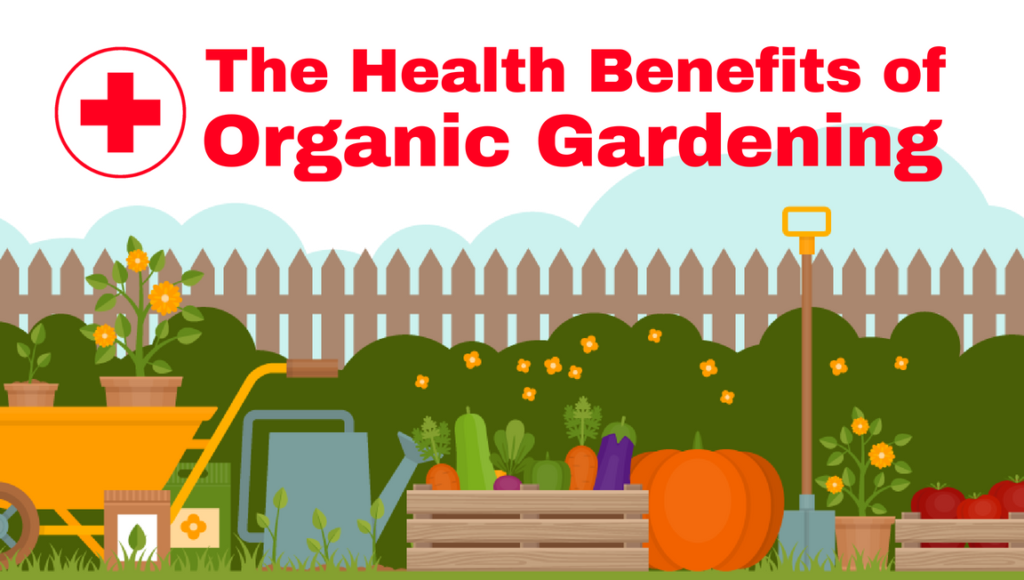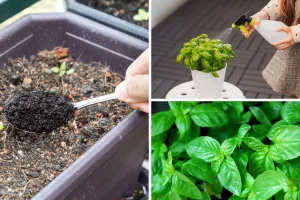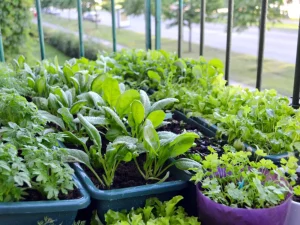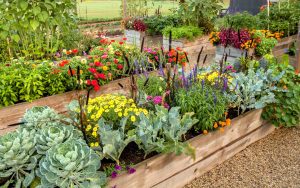In a world where technology and cities are becoming increasingly important, caring for your garden is like returning to a simpler, more natural way of life. Organic gardening in particular is becoming increasingly popular because it is good for the planet and offers many health benefits. There is plenty of research to support the idea that organic gardening is not only fun and beneficial, but can also have a significant impact on our physical and mental health. In this article, we dive into the world of organic gardening and look at the many ways it can keep your body and mind healthy.
Organic Gardening Movement:
Organic gardening is a way of growing plants that focuses on natural processes and long-term survival. Natural pesticides, herbicides and nutrients are used instead of chemicals. The main goal is to create a healthy environment together with nature in which plants, animals and micro-organisms can live together.
Benefits for Your Body:
1. Food is Fresh and Nutritious
Fresh, nutritious food is one of the most obvious health benefits of organic gardening. When you grow vegetables and fruit organically, you decide what goes into the soil and therefore what you eat. Organic produce typically contains higher levels of vitamins, minerals and enzymes than conventionally grown produce.
2. Less Exposure to Harmful Chemicals
Conventional gardening often uses synthetic chemicals, which can leave traces on food. Organic gardening does not use pesticides and herbicides, which means you are less likely to be exposed to potentially dangerous chemicals. This helps improve long-term health and reduces the chance of health problems caused by pesticides.
3. Do more Physical Activity
Gardening is a physical activity that allows you to exercise your entire body. Digging, planting, weeding and harvesting all require physical strength, which can help improve strength, flexibility and heart health. Regular gardening is a fun way to stay active without being as boring as other exercises.
4. Stress Reduction
Research shows that spending time in the garden can help people relax and reduce stress. Fresh air, sunlight and the sounds of nature can help calm the mind. As a form of horticultural therapy, gardening is often used to help people with anxiety and sadness feel better.
5. The Immune System becomes Stronger
Being around dirt exposes you to a variety of microorganisms. This natural exposure helps your immune system by maintaining a good balance of intestinal bacteria. With a strong immune system you are better able to fight diseases and allergens.
Mental Health Benefits:
1. Clear Mind and Focused Attention
When making plans, pay attention to details, plan ahead and solve problems. These psychological tests can help you think more clearly and pay more attention to what you are doing. As a form of mindfulness, gardening can help people with attention deficit problems feel better.
2. Make Yourself Feel Better
Gardening has a special way of making people feel better. Taking care of plants and watching them grow can give you a feeling of success and happiness. Gardening gives you a direct connection to the natural world, which makes you happier and more satisfied.
3. Get Rid of Stress
We’ve already discussed this, but it’s important to remember how farming can help you reduce stress. Getting outside and away from the hustle and bustle of everyday life is a great way to relax and escape mental stress.
4. Have a Goal in Mind
People feel useful and responsible when they take care of their garden. It brings structure and order to everyday life, which is especially useful for people going through a major change or retiring. Taking care of your garden can make you feel good about yourself and give you more motivation.
5. Get in Touch with Nature
In an increasingly urban world, more and more people are losing connection with nature. Gardening gives you the opportunity to reconnect with nature, which can give you a sense of connection and care for the environment.
How to Start an Organic Garden:
If you want to learn how organic gardening can help your health, here are some tips to get started:
1. Choose the Right Place
Choose a spot in your garden or on the roof where your garden receives sufficient sunlight. Most plants grow best when they receive at least six hours of sunlight every day.
2. Make the Soil Healthy
Take the time to add compost, organic matter and natural chemicals to the soil to make it healthy. Strong plant growth starts with good soil.
3. Make a Plan for Your Garden
Think about what you want to grow and how much space it will require. A good space provides room for plants to grow and prevents them from competing for the same nutrients.
4. Choose Organic Seeds or Plants
Choose seeds or plants from clean sources to start your garden. Find reputable suppliers who sell organic versions of your favorite fruits, vegetables and herbs.
5. Use Environmentally Friendly Methods
Follow sustainable gardening techniques such as mulching to conserve water, companion planting to naturally repel pests and crop rotation to keep your soil healthy.
6. Don’t Waste Water
Water your plants early in the morning or late in the evening to prevent as much water as possible from evaporating. Buy a rain barrel to collect water and water your plants.
7. Check and Follow Up
Check your plants regularly for signs of pests or disease. Getting help early with natural remedies such as neem oil or home remedies can prevent the problem from getting worse.
8. Learn Patience
Taking care of a garden takes time and patience. Not all plants grow well and problems sometimes arise. Use these questions as learning opportunities to adapt and improve your farming skills.
9. Talk to Gardeners in Your Area
Joining a local garden club or online gardening community is a great way to meet experienced gardeners who can help you on your gardening journey and provide you with advice.
10. Have Fun along the Way
Remember, growing organically doesn’t just mean getting something out of it; It’s also about experience. Enjoy being close to nature, exercising and taking care of your garden.
Conclusion:
Organic gardening is more than just fun; This is a lifestyle that can have a significant impact on your overall health. When you grow a garden using natural and environmentally friendly methods, you will not only get fresh, healthy food, but your physical and mental health will also improve.
Organic gardening has many health benefits, such as reducing stress, improving mood, increasing exercise and maintaining a clear mind. So if you haven’t already, consider starting your own organic garden. It’s an investment in your health and a way to connect with nature in a more sustainable, peaceful way. As you dig, plant and maintain your garden, you will find the benefits extend far beyond your land. They will help your body, mind and soul.
FAQs:
1. Is organic gardening suitable for beginners?
Yes, organic gardening is suitable for beginners. It involves less complex sustainable and natural practices. Starting small and learning as you go is a great approach.
2. How does organic gardening improve mental health?
Organic gardening provides a sense of satisfaction, reduces stress and improves mood by nurturing plants and connecting with nature. It also improves cognitive skills such as concentration and problem solving.
3. What natural pest control methods are available in organic horticulture?
Organic gardeners often use companion plants, introduce beneficial insects and homemade solutions such as garlic spray or neem oil to control pests naturally without resorting to chemical pesticides.
4. Can organic gardening save production costs?
While there may be initial costs for tools and soil amendments, growing your own organic produce can save you significant costs in the long run, especially if you regularly buy organic fruits and vegetables.
5. Does organic gardening require a large garden?
No, you don’t need a large garden to garden organically. Many organic gardeners have had success using containers and vertical gardening techniques to grow plants in small spaces, on balconies and even indoors.



